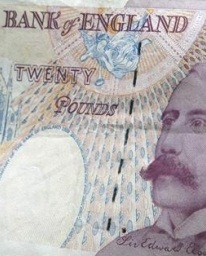 LONDON | Although under threats of a possible sovereign debt rating downgrade, the UK’s government showed how to take advantage of the little margin for manoeuvre available when presenting the 2012 budget. Some pro-business measures would boost growth, said investing management firm Schroders, but they will not be enough to avoid a return to the Bank of England’s monetary expansion programme.
LONDON | Although under threats of a possible sovereign debt rating downgrade, the UK’s government showed how to take advantage of the little margin for manoeuvre available when presenting the 2012 budget. Some pro-business measures would boost growth, said investing management firm Schroders, but they will not be enough to avoid a return to the Bank of England’s monetary expansion programme.
Schroders released its viewpoint over the coming months and pointed out that business investment growth has been very weak in the UK since the credit crunch. Poor domestic demand and uncertainty in the euro zone have discouraged capital spending.
“Foreign direct investment has also been badly hit and while the corporate sector in aggregate is cash rich, many especially SMEs still complain of a lack of funding,” Azad Zangana, European economist at Schroders, added.
“Overall, the budget should be positive […] However, these measures alone are not a game changer. More quantitative easing is likely to follow from the Bank of England.
“The Bank increased their quantitative easing programme by a further £50bn in February, but we expect the BoE to continue with another £50bn in May, another £50bn in August, before slowing down and ending with a final £25bn in November. This would take the total value of gilts purchased to £450bn.”
About the global economic scenario, Schroders indicated that 2012 is shaping up to be a repeat of 2011, when increasing optimism about the world economy in the first quarter had evaporated by the middle of the year, bringing a sharp decline in equity markets.
Chief economist Keith Wade said that the recent rise in the oil price is an echo of that period and may well herald a period of softer activity. There are some key differences, one of them being a better reaction from the European Union to limit damage:
“The commodity shock is not as great as last year as oil prices have not risen as rapidly and food prices are down. Furthermore, policy makers have acted to support growth with the European Central Bank in particular containing tail risks through the provision of unlimited term liquidity to the banks. Meanwhile, Greece has received a second bail out.”
Wade warned that there are still tensions between Iran and the West, and it is yet to be confirmed whether some of the peripheral euro zone countries will be able to meet fiscal targets.
“Investors and economists are cautious, probably a better basis for the markets to withstand whatever the world economy has in store compared with a year ago.”





Be the first to comment on "Switch on the sterling pound printers, Schroders advises Number 10"